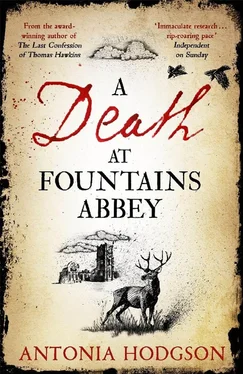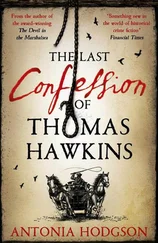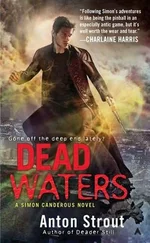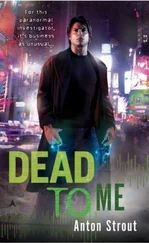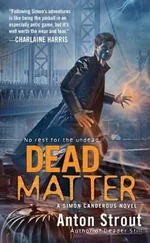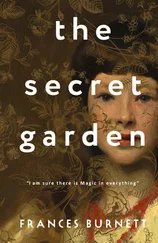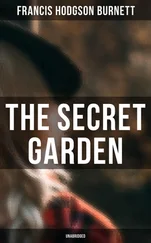‘Welcome to Studley Hall.’ His voice was damaged, low and rasping. It made him sound villainous, poor fellow.
I followed him into the entrance chamber, an old feasting hall with a patterned ceiling two storeys high above our heads. The latticed windows blocked out the spring sunshine, and the huge stone hearth was unlit. ‘Thank you, Mr…’
‘… Sneaton. If you would follow me? Mr Aislabie is waiting.’ He was a man of the south, and he pronounced the name differently from Pugh: Aizlabee rather than Aizelbee . Well really, if the servants couldn’t agree on how to say their master’s name, what hope did I have?
‘Perhaps we might unpack…’ I gestured towards the carriage, hoping to visit my quarters first.
A sullen-faced fellow of about five and thirty strode past us to the carriage, dressed in a green velvet coat and immaculate white stockings, his wig heavily powdered. The butler, I supposed. Two younger footmen trailed eagerly in his wake, dressed in the same livery, though not so fine. Within moments the three men were hurrying back through the hall, bags and boxes hoisted on their shoulders. That is to say, the two footmen carried my belongings, while the butler strode behind them, imperious, as if he could hear a fanfare blaring in his head as he walked.
‘West wing, Bagby,’ Sneaton called gruffly to this regal creature. ‘The oak apartments.’ Bagby did not condescend a reply. He strode up the staircase, past a large, faded tapestry, and was gone.
Sam had taken advantage of the bustle to enter the room in his preferred way: unnoticed. He stood with his back to us, staring up at the deer antlers and weapons covering the high stone walls, the swords, muskets and pistols.
Sneaton, spying him for the first time, gave a jolt of surprise. Sam had an unsettling ability to fade into the background, and Sneaton was not the first to be startled by it. ‘Your valet?’ he asked, in a disbelieving tone. Was it the mismatched clothes that caused suspicion? The black tangle of curls, defiantly kept free of any wig? Or did Sneaton sense something deeper than such surface trifles?
‘My ward.’
Sam reached up and traced a finger over the firing mechanism of an old musket. Sneaton frowned, clearly vexed by such an obvious lie but not sure how to confront it. While he struggled with this conundrum, I joined Sam at the wall. ‘Find our rooms,’ I murmured. ‘And have a scout around if you can.’
Sam slipped away up the stairs.
I followed Sneaton through an empty drawing room furnished with sagging red velvet couches and gilded tables. A harpsichord stood in one corner, its inner lid decorated with a classical scene of nymphs dancing by a river. The walls were hung with family portraits down through the ages. The finest of all was set above the white marble fireplace: the painting of a young man in a brown velvet coat. He had a confident, vigorous air, and wore an easy smile, as if he were contented with the world and a little pleased with himself. I stopped in front of him, curious.
‘Mr Hawkins,’ Sneaton nudged. He was wheezing a little.
‘Is that Mr Aislabie?’
‘Yes. From thirty years ago.’ His damaged hand hovered at my elbow. ‘Please, sir.He is impatient to meet you.’
I followed him into a narrow corridor. ‘Has something happened, Mr Sneaton?’
He knocked on the door to Aislabie’s study. His face was grave, beneath the tangle of scars. One eye blind, the other bright with anger.
‘Yes, Mr Hawkins, something has happened. Something devilish.’
I smelled the blood as soon as I entered the room. The air was thick with it. Some months ago I had woken in a prison cell to find a man murdered in the next bed. Aislabie’s study was tainted with the same stink: the unmistakable scent of freshly butchered meat.
‘Mr Hawkins. You’re late, sir. I needed you here this morning.’
Aislabie stood behind a desk covered in bills and estimates – a tall, neat gentleman with an excellent bearing. He was watching through the open window as his men toiled on the new building. I saw in his profile the handsome young man from the portrait next door, grown older – the same lean face and cleft chin. His jawline had softened and his brows were grey, but at six and fifty, time had treated him well.
A trestle table stood in the centre of the room, in front of the desk. Something lay stretched out upon it, covered in bed sheets. The body of an animal, six feet in length. The sheets were streaked with blood. I slid my gaze across its bulk.
Outside there was a shout of alarm, followed by the low rumble of rocks pouring from a cart. ‘You stupid arsehole!’ The words drifted into the room from a hundred feet away. ‘ Y’almost killed me you fucking idiot!’
Aislabie breathed heavily through his nose and turned to face me. His eyes were large and dark. With one swift sweep he took me in, from the top of my head to the silver buckle of my shoe. His lips pressed to a thin line. ‘How old are you?’
‘Does it matter?’ Given his own uncivil greeting, I found no reason to be polite in return. I focused my attention on the blood-soaked sheets. A fresh kill. Fresh meat, not yet tainted.
‘Five and twenty at most,’ Aislabie muttered.
Six and twenty, in fact. I had celebrated my birthday upon the road with a few bottles of claret, amazed that I had survived so long. ‘The age you entered parliament, Mr Aislabie.’
I used Sneaton’s pronunciation – Aizlabee - and placed emphasis upon the word Mister , just in spite. Aislabie’s public disgrace had ensured that he would never be granted a title. His jaw tightened, at this, or perhaps at the mention of parliament. Old humiliations, old resentments, still raw under the skin.
I tilted my chin to the trestle table, the bloodied sheets. ‘What’s this?’
His nostrils flared in disgust. ‘An outrage. ’
‘It was left on the front steps this morning,’ Sneaton explained. He began to roll back the sheets then paused, scarred hand gripping the cloth. ‘You’re not womanish about blood, Mr Hawkins?’
Womanish. I thought of Kitty, cheering at the edge of a cockpit as the birds slashed each other with silver spurs.
‘It’s not a pretty sight,’ he added. And winced, realising how that must sound coming from one so ravaged.
‘When you’re ready,’ I replied.
Sneaton pulled at the linen to reveal a russet haunch and a dainty black hoof. A deer. I breathed out slowly. I’d been holding my breath without realising it, expecting something much worse. How quickly my mind turned to murder these days.
The blood was much thicker at the animal’s middle, and the sheets had become stuck to the wound. Sneaton put his hand under the cloth and tugged it free.
The doe had been slit open from its throat, down along its belly to its hind legs. Its innards had been scraped out, but something was stuffed inside the carcass.
I put a hand to my mouth. It had been carrying a fawn.
I bent down, forcing myself to examine the thing more closely. The fawn had been cut from its mother’s womb and then placed back inside the cavity, its tiny head poking out in an obscene parody of birth. Another few weeks left in peace and it would have lived, making its first steps on trembling legs. It must have been alive when it was pulled from its mother’s body. Whoever did this must have held it for a moment, warm skin and beating heart. And then wrung its neck.
‘Who found this?’
‘Sally Shutt. Our youngest maid.’
I rubbed a patch of linen between my thumb and fingers. ‘You’ve ruined some good sheets carrying it here.’
He nodded at the deer. ‘She was laid out on ’em when we found her.’
Читать дальше
